“So, she doesn’t do anything after school?”
The words land between us as my mail slips from my hands, scattering onto our cul de sac — credit card offers, a hospital bill, a magazine I don’t remember subscribing to. The late evening breeze catches the edge of an envelope, flipping it over. I reach down but my neighbor is faster.
“Let me help you.”
She crouches, gathering envelopes, stacking them neatly before handing them to me. She’s just gotten home from work, her tote slung over one shoulder, keys still in her hand. I notice the sharpness of her blazer, the effortless way her hair is still smooth, lipstick still on.
She is five years younger than me, but everything about her feels ahead — the structured, high-achieving career, the jet-setting to London and New York, the two perfectly-spaced kids, the house as big as ours, yet somehow more sorted out.
“And she sleeps in on weekends?”
It’s not really a question. More like an alarm disguised as small talk.
Her daughter, the same age as mine, is being ferried by the driver to ballet class right now. Tomorrow, it will be tennis practice. The day after, French lessons. And then there’s field hockey, piano and math multiple times a week and on weekends. She lists them off with a rapidity that gives me goosebumps — necessary investments for a well-rounded future.
“But aren’t you worried she’ll fall behind?”
Behind what? I think.
The air between us stills. A hummingbird pauses at our Walker’s Deep Blue Nepeta then flutters off into the sunset. A squirrel scurries on the power cable overhead. My neighbor shifts her weight, adjusting her tote, watching me the way someone watches a child about to make a mistake they can’t undo.
“Well, she’s enjoying the slow pace of Montessori school,” I smile, but she presses on, tilting her head slightly, as if softening what comes next.
“College applications will be here before we know it,” she says in a way that seems earnest.
I know how she sees me.
A devoted stay-at-home mom who does some art and writing on the side. A woman who gave up a flourishing career, no promotions to chase, no external markers of success. A woman older than her, yet somehow behind.
I can almost hear the unasked question — Don’t you want more for her?
But, in that moment, I pause: am I not judging her as well?
The hardcore logic-driven engineer. The woman who measures success in structured routines, in degrees, in discipline. The mother who believes childhood should be optimized, tracked, and maximized for future achievements.
Her concern is genuine. Her advice, in her world, is valuable. And yet, I reject it instantly.
How easily we define each other in the narrowest of terms.
I shift the mail under my arm and say something polite about making dinner. We part ways, but her words follow me up the driveway, rejected but not entirely dismissed.
Through My Daughter’s Eyes
Inside, my daughter is curled on the couch with our pup, buried in a book as usual. When I give her the 10-minute dinner-time warning, she will wash her hands, set the table and stand beside me, watching as I fold ham and cheese into her crispy dosa.
She never asks for more.
In fact, she’s told me — more than once — how much she appreciates that I am here. That I have time. That I know her friends; not just their names, but what they like to eat, what makes them laugh, what small things upset them.
“You’re the only parent who actually sits with us when we hang out,” she said once. “My friends actually like talking to you.”
An anomaly. I asked if she would rather I stay in the background, like the other parents.
“No,” she said emphatically. “I get to find out things about them, too, because of the questions you ask.”
She notices. She is grateful. There is no other utopia for her. And yet, there is still a small part of me that wonders. Not now, but years from now … will she continue to see it this way? Or will she look back and wonder what else I could have been?
Twenty Minutes that Changed Everything
The old-fashioned, wood-paneled conference room, lined with high leatherback chairs had a soft glow about it. The warm Indian summer light that was supposed to be comforting felt too intense, too clinical, too precise.
My portfolio sat on the long table, exposed, waiting to be judged by the industry titans.
A panel of nationally-acclaimed musicians, artists, film directors and professors, flipping through a 19-year-old’s “body of work” with cool detachment, their fingers grazing the edges of my watercolor paintings, lingering just long enough to register the words accompanying the art, before passing it on.
I sat up straighter, parched throat, blurry eyes, sweaty palms as the folder reached the end of the massive mahogany table. A nod. A raised eyebrow. A slight lean forward. The interview committee head slid my portfolio with a finality toward me.
“Your work is fine,” he said, pushing up his silver-rimmed glasses that matched the color of his curly hair. "But it is unimaginative, unoriginal and, frankly, this is average talent.”
Average. There it was again. The familiar ache of never being good enough.
There was no point hanging on to any shred of hope. But he tried to soften the blow with: “Perhaps you should consider something else. Writing, maybe?”
My throat tightened. I nodded. I nodded, not in agreement but in surrender.
For a moment, I thought about staying in my seat, as if I could still change the outcome. I could hear my heartbeat in my ears as I stood up. Some parting words were said, but all I could think of was the dejected look on my parents’ faces waiting outside.
And that is how my life trajectory changed.
How a handful of strangers determined the course of my life in under twenty minutes. I tucked away my brushes and pursued journalism instead. Because someone else decided that was the correct path for me.
Purposeless Movement
I see her everywhere.
When I am driving in the morning to drop off my daughter to school, mid-afternoon coming home from a grocery run, during my evening dog walks, moving along the length and breadth of our neighborhood like clockwork.
Always in black. A wide-brimmed hat in summer, a beanie in winter. Sunglasses year-round. No headphones, no distractions. Just walking at a constant, unhurried pace.
My usually docile Australian Labradoodle lunges forward and barks — small but shrill sounds I hadn’t heard him make before. Something about her black clothing, the silhouette of the hat against the sky, unsettles him.
He doesn’t like anyone touching his head. But as I hold his trembling body close, she bends anyway, laughing, stretching her hand toward him. “It’s okay, pooch.”
Slowly, I lower him. His breath is fast, erratic, but he lets her stroke the sides of his ears.
Seizing the opportunity to satisfy my curiosity, I ask: “I see you all the time. Are you training for something?”
She shakes her head and with a shrug, ever-so-casually responds: “Oh, no! I just enjoy walking.”
No agenda. No tracking. No finish line.
Just movement for the joy of it.
I smile in awe. She owns the fact that her walking doesn’t lead her anywhere. Such conviction. Such courage to do something just because it’s enjoyable.
I watch her figure grow smaller against the horizon, her pace unchanged. The simplicity of her routine, the steadiness of her steps — it lingers in me, a quiet marvel.
Does one have to reach a certain age to achieve this kind of nirvana? Or is it something I could find peace in today, in my here and now?
My Mother’s Yardstick
I don’t want the boardrooms.
I know what they take.
I’ve seen the trade-offs. I’ve seen the exhaustion behind my neighbor’s eyes, despite her perfect hair and matte lipstick, the way their schedules run with surgical precision, the way they are constantly managing. Their time, their home, their children. Their lives are efficient, structured, optimized.
They have a cook. They have six-month rotations of family help from abroad. They have a driver for pickups and drop-offs.
They have built a life that allows them to have it all. And yet, I wonder.
Not about the career I could have had. Not about the promotions or the titles.
But about how my life would have been perceived if I had kept going.
Would my mother respect me more?
She was the woman who shattered glass ceilings, the woman I watched command rooms filled with men who never expected her to be at the head of the table.
Would I have been more worthy in her eyes, had I stayed on that path?
Would she have looked at me and seen her legacy instead of a constant disappointment?
What Matters, After All
We are eating leftovers on our 24th anniversary. No fancy dinner, no wine. Just two plates balanced on our laps, an episode of This Is Us playing on the 65” screen five feet away from our couch overladen with blankets and cushions.
“What do you want most from life?” I ask the question casually, but it hangs heavier than I expect.
He pauses, spoon midair.
After decades of leading teams at Silicon Valley’s most coveted companies before finally starting his own, he looks at me with an unexpected clarity.
“To be here, now — time with my family.”
I feel something catch in my throat. His surgery did give him perspective, after all.
He’s been at it for decades — chasing the next milestone, the next achievement, the next validation, but today he sits next to me, draped in that soft blue blanket with a hint of a turmeric stain, articulating something I’ve been feeling in my bones.
What exactly are we racing toward?
It hits me in the most mundane moments.
Standing in the kitchen, waiting for the kettle to boil.
Mid-scroll on LinkedIn, watching someone announce their next big thing.
Listening to my husband interview a candidate for an executive position, the person meticulously listing degrees, certifications, previous titles — as if these credentials are the most relevant things about them.
What do these achievements really mean when we are 50, 60, 70?
Do they validate us?
Do they make us more credible, more worthy?
Are we falling behind because we aren’t using them in the way we were supposed to?
Catching up to what?
Parallel Lives
After dinner, I rinse our plates while he types an email on his phone. The soft scrape of sponge against ceramic. The dull clatter as I set each plate into the drying rack. No sound from the couch — he is in a different world. As I turn the faucet off, he looks up. “You okay?”
I wipe my hands dry, take a step forward and think about telling him.
Telling him about the neighbor, about our daughter’s words, about my mother’s legacy pressing invisibly against me.
Telling him that I don’t regret, but I do wonder.
Telling him that I know we live in different realities— that his was uninterrupted, that mine shifted in ways that will never be fully visible to him.
Telling him that I don’t resent him for it. But I do feel the distance it has created between us.
"Yeah," I say instead. "Just tired."
He nods.
I could say more, but what would it change?
He’s already back on his phone. Connected elsewhere.
I fill up my water bottle for the night.
And the moment passes.
Outside, as I step onto the porch for the pup’s last walk, my neighbor’s car pulls into the driveway. They’re back from their weeklong spring break trip to Istanbul. She steps out, stretching, rolling her shoulders, her exhausted frame set against the bright headlights.
As the pup circles around our gravel looking for the perfect spot to relieve himself, I wonder … was she at peace with all the extracurricular classes her daughter must have missed?
But then I hear her voice as they’re carting the luggage inside: "Ok kiddos, now you can tell your friends all about Turkey!"
Another box, neatly checked off.
Checkboxes No More
I think about the woman I see in our neighborhood rain or shine.
Always in black. Just walking. Just movement for the joy of it.
She has inspired me to take a moment to sit. To observe. To exist without agenda. Through my daily five-minute sensory incantation exercise, I let myself write just for the joy of it. No audience. No validation. Just the act of noticing—how light moves across the walls, how the air smells just before dusk, how the weight of my body settles into the chair.
A moment that is fully mine.
And yet, the world keeps whispering: What’s next? What are you building toward? What are you working on?
As if presence is never enough. As if the only things worth doing are the ones that lead somewhere.
But what if I don’t want to lead anywhere?
What if I just want to be here — fully in this moment, unburdened by the weight of proving, achieving, catching up?
Because isn’t that the trick of it?
The chase is intoxicating. The list is endless. The milestones are designed to keep shifting just beyond our reach.
And then what?
What happens after we check all the boxes? What happens when the bucket list is complete? What happens the day after we catch the Road Runner? What happens when the chase is over — when the thing we’ve been running toward turns out to be nothing but air, just like it always was for the coyote?
Maybe, deep down, we already know.
Perhaps, that’s why we keep setting the next goal, the next dream, the next pursuit — because stopping would mean confronting the truth: There was never anything to catch in the first place.
Take good care,
Mansi.

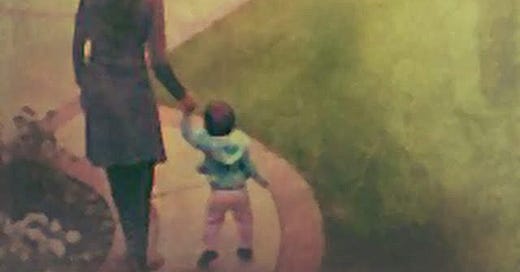



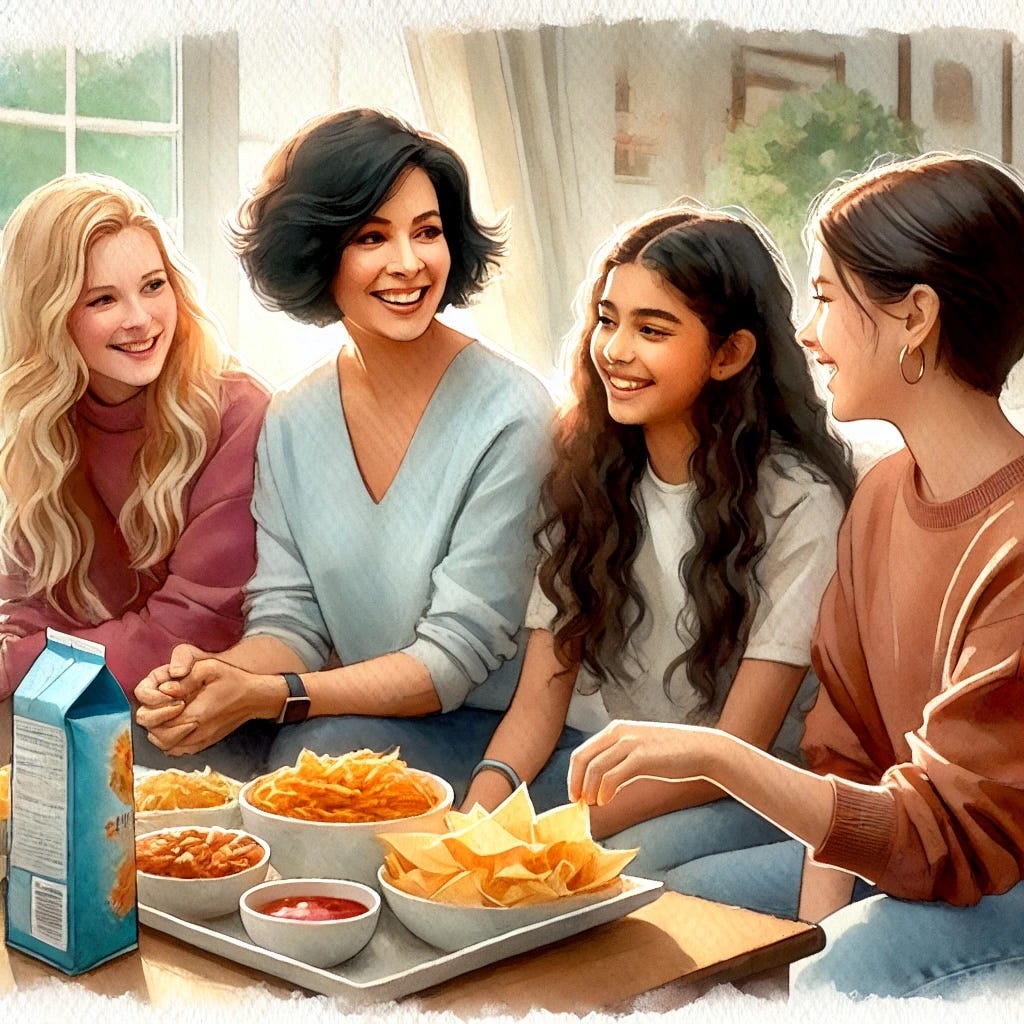
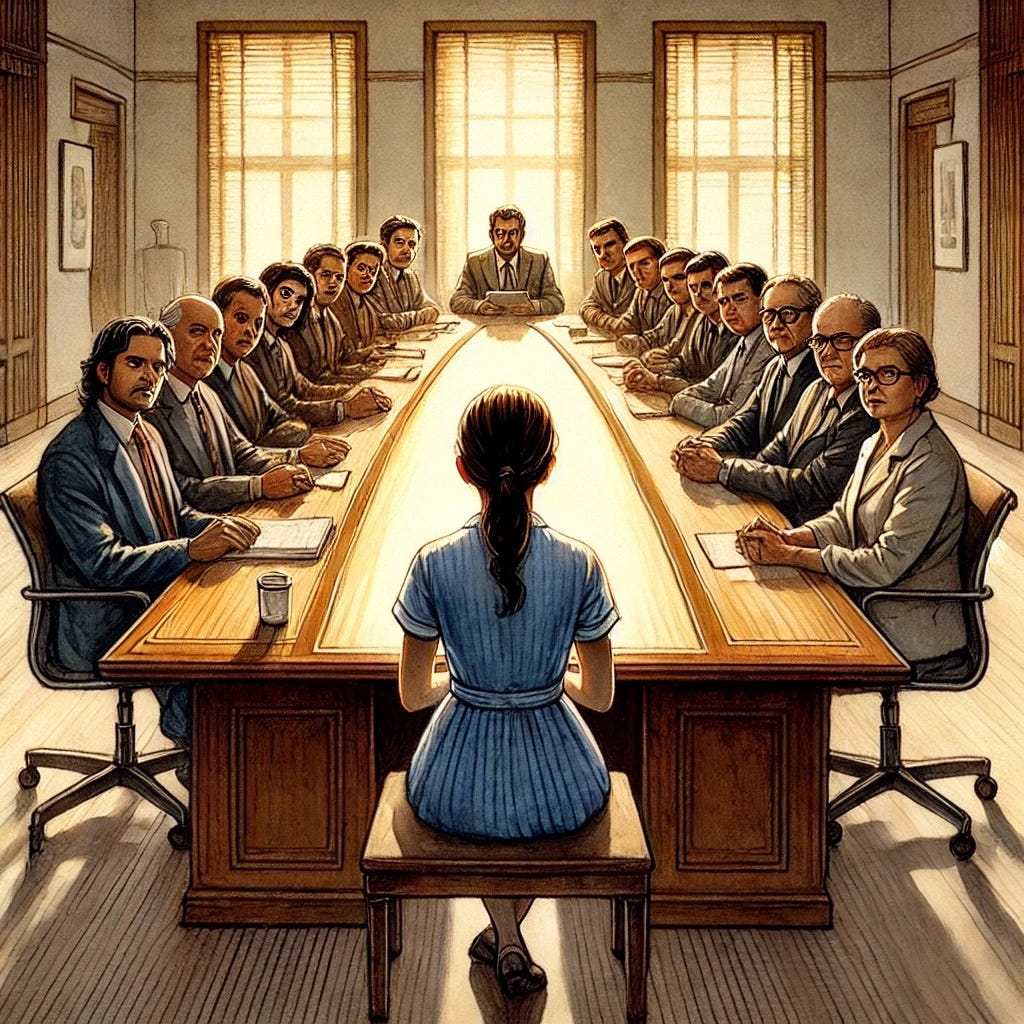
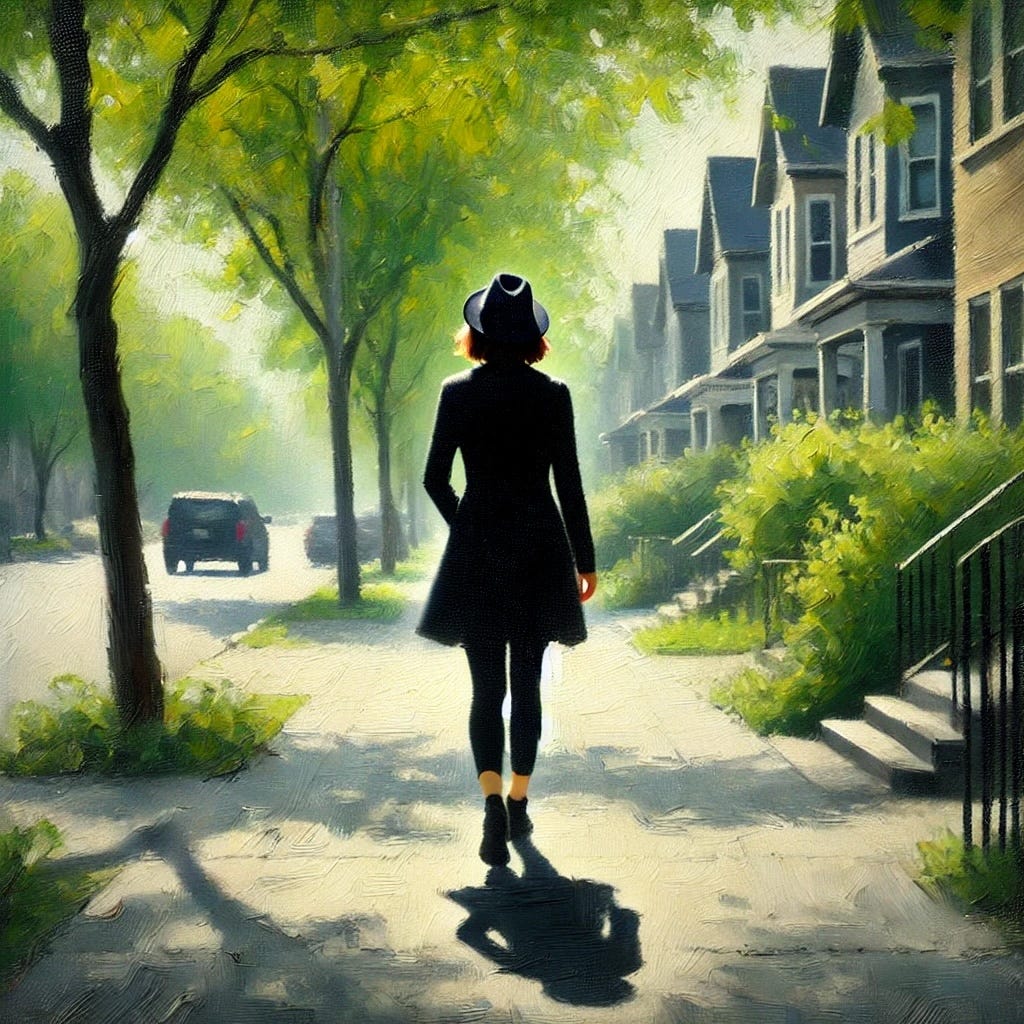
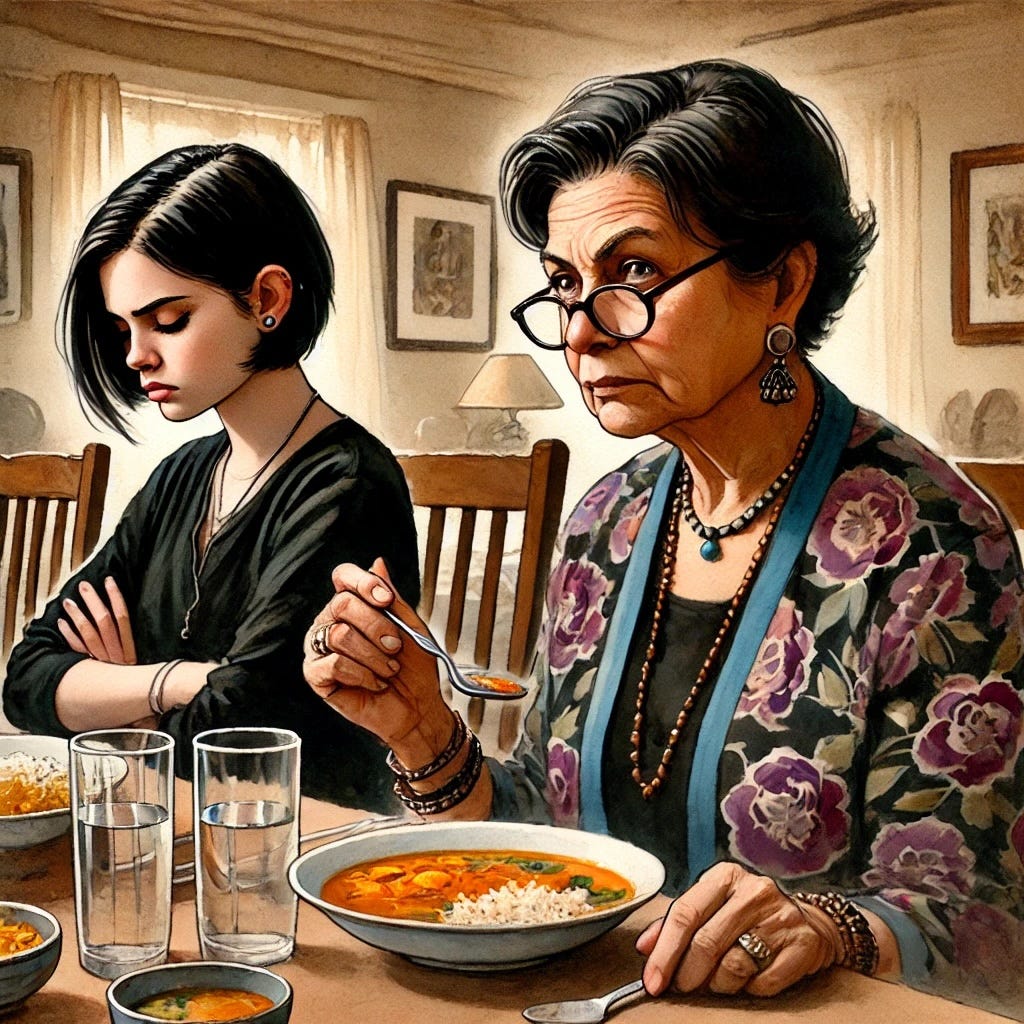

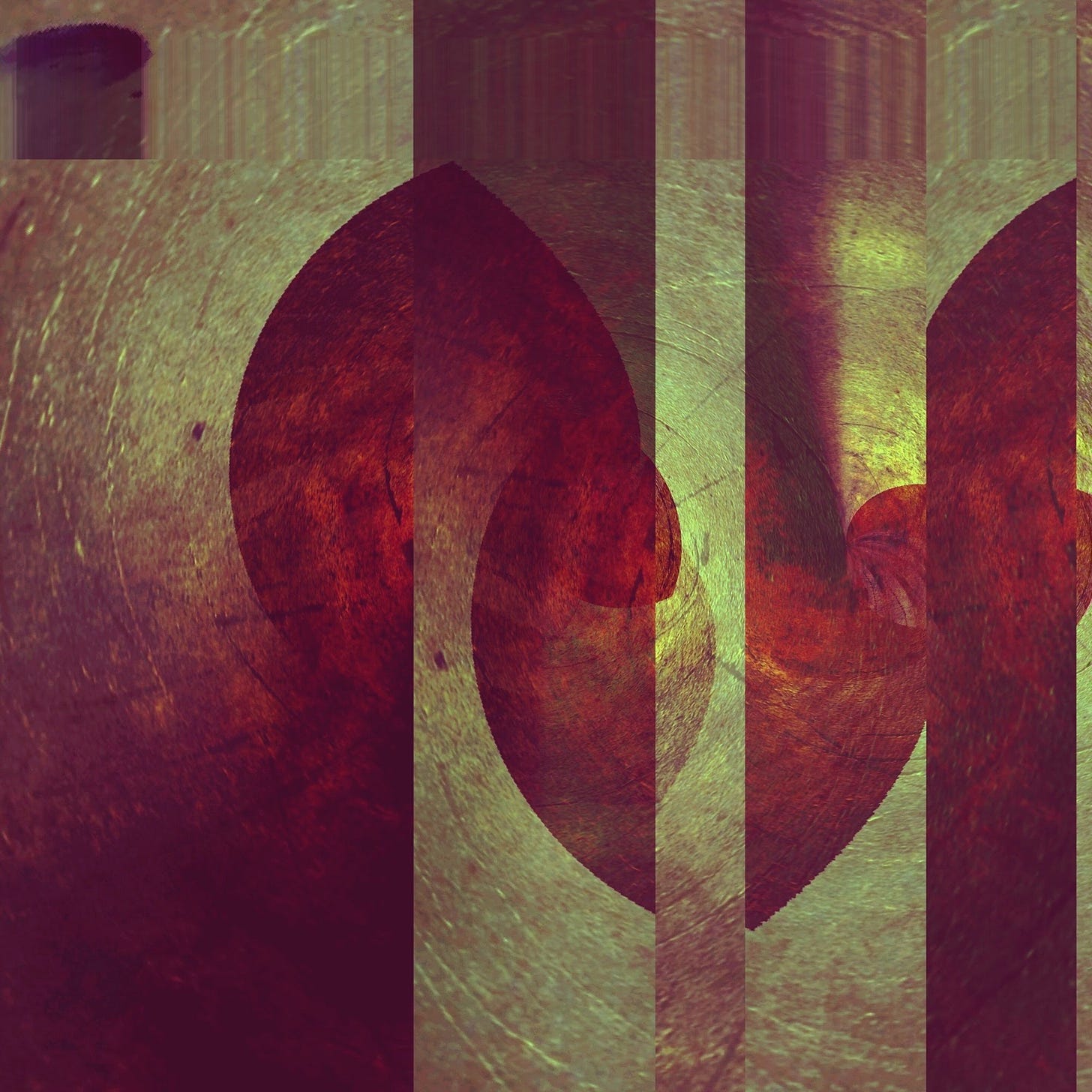

Such wisdom here, Mansi. Our family isn't involved in a slew of extracurricular activities, either. Mostly it's because I spend a lot of time taking Sarah to appointments. Sometimes I feel left out in conversations about other kids who have soccer practice and piano lessons.
I'm pretty sure our kids know what we value, in terms of activity and rest. There's daily rest time around noon until about 2 on weekends, and everyone is required to slow down and do something quiet, like read or color or draw.
So, your post made me smile, in knowing that we're not alone here and there are other people trying to figure out how to exit the rat race, though it's countercultural. I'm glad we're in this together.
Such a beautiful piece Mansi. I'm in awe to be discovering your publication at a time when I've intentionally stopped chasing the illusion of a "next goal". What if the purpose of it all has always been to do the things we love, surrounded by people we love?